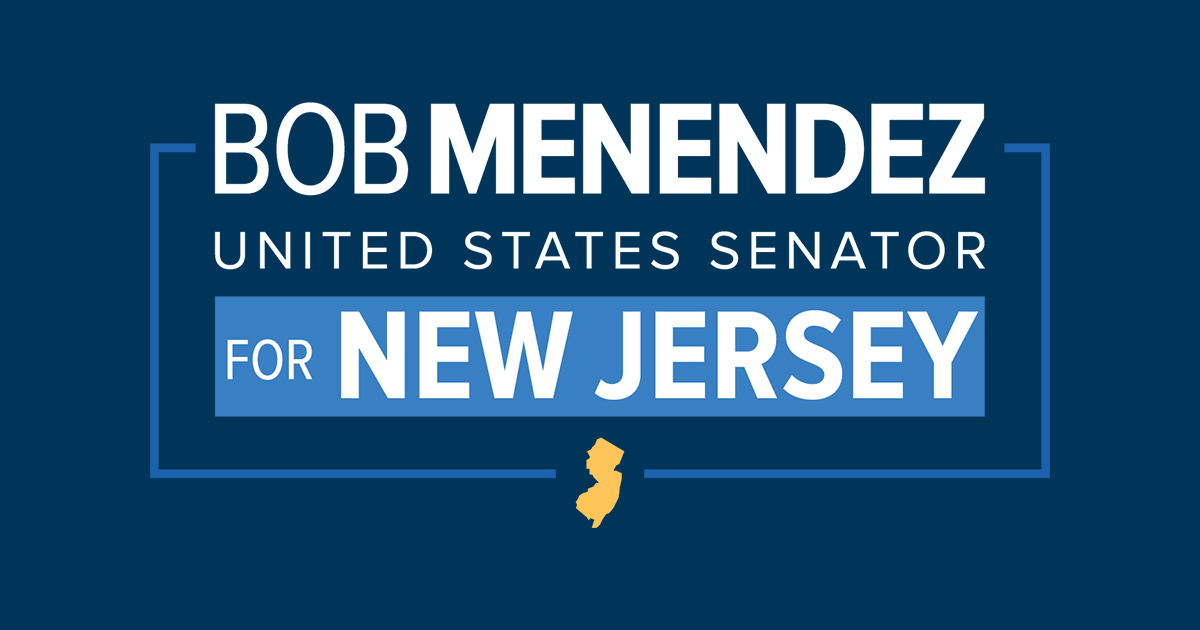Source: United States Senator for New Jersey Bob Menendez
WASHINGTON, D.C. – U.S. Senator Bob Menendez (D-N.J.) joined a group of colleagues in calling on the Biden Administration to ensure that seniors currently enrolled in Medicaid have a smooth path to health care coverage after the COVID-19 public health emergency ends. The letter calls on Centers for Medicare and Medicaid Service (CMS) Administrator Chiquita Brooks-LaSure to establish a special enrollment period for these beneficiaries to sign up for coverage, and waive any related late-enrollment fees they may have accrued.
“We appreciate the important services and supports that the Centers for Medicare and Medicaid Services (CMS) has administered to help older Americans utilize telehealth, access COVID-19 testing, vaccines and treatment free of charge, and maintain comprehensive coverage,” wrote the Senators to Administrator Brooks-LaSure. “However, as the threat of the virus begins to subside and the Biden Administration considers terminating the COVID-19 Public Health Emergency (PHE), we are concerned that the Medicare beneficiaries may experience avoidable gaps in coverage.”
Provisions of the bipartisan Families First Coronavirus Response Act (FFCRA) ensured that children, working adults and seniors alike could retain their health insurance coverage through the ensuing period of extreme economic uncertainty and volatility. Both the funding and coverage provisions of the FFCRA will expire upon termination of the PHE, at which point states will begin to remove ineligible individuals from their Medicaid programs.
“We urge you to provide a smooth transition to Medicare coverage for these seniors through a special enrollment period, and to exempt them from any financial penalties that would otherwise be assessed for late enrollment,” the Senators continued. “CMS and stakeholder partners should conduct extensive outreach to raise awareness among seniors of this coverage change, and ensure they have the tools and information necessary to choose the Medicare coverage option that works best for them.”
Joining Sen. Menendez in sending this letter were Sens. Catherine Cortez Masto (D-Nev.), Sherrod Brown (D-Ohio), Bob Casey, Jr. (D-Pa.), Maggie Hassan (D-N.H.), Sheldon Whitehouse (D-R.I.) and Debbie Stabenow (D-Mich.).
The full text of the letter can be found HERE and below.
Dear Administrator Brooks-LaSure:
Thank you for your work to keep seniors safe and healthy over the course of the COVID-19 pandemic. We appreciate the important services and supports that the Centers for Medicare and Medicaid Services (CMS) has administered to help older Americans utilize telehealth, access COVID-19 testing, vaccines and treatment free of charge, and maintain comprehensive coverage. However, as the threat of the virus begins to subside and the Biden Administration considers terminating the COVID-19 Public Health Emergency (PHE), we are concerned that the Medicare beneficiaries may experience avoidable gaps in coverage.
At the onset of the COVID-19 pandemic, Congress acted quickly to shore up federal health programs and protect access to affordable coverage for American families. In particular, the enhanced Medicaid funding and corresponding continuous eligibility provisions of the bipartisan Families First Coronavirus Response Act (FFCRA) ensured that children, working adults and seniors alike could retain their health insurance coverage through the ensuing period of extreme economic uncertainty and volatility.
Both the funding and coverage provisions of the FFCRA will expire upon termination of the PHE, at which point states will begin to remove ineligible individuals from their Medicaid programs. Included among these people are seniors who may have remained on Medicaid despite becoming eligible for Medicare over the course of the pandemic. This unprecedented transition could result in coverage losses for millions of Americans.
Because CMS has never before faced a similar situation at this scale, we are concerned that current beneficiary enrollment processes do not provide adequate coverage options for this type of transition. Medicare-eligible individuals who lose Medicaid coverage outside of Medicare’s open enrollment period may be unable to elect Part B coverage. This will leave them without access to comprehensive care, and they may face fines for failing to get covered earlier.
We urge you to provide a smooth transition to Medicare coverage for these seniors through a special enrollment period, and to exempt them from any financial penalties that would otherwise be assessed for late enrollment. CMS and stakeholder partners should conduct extensive outreach to raise awareness among seniors of this coverage change, and ensure they have the tools and information necessary to choose the Medicare coverage option that works best for them.
COVID-19 has been especially difficult for older Americans, and we must do everything possible to support their needs as we emerge from the pandemic. Thank you for your attention to this matter, and we look forward to working together on our shared goal of protecting access to quality health care for seniors.
Sincerely,
###
